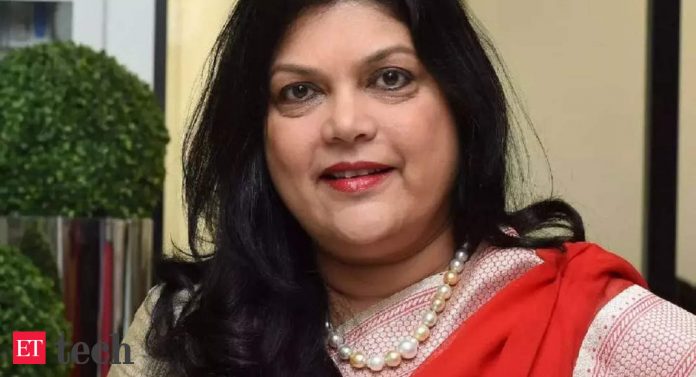The cosmetics-to-fashion retailer is targeting 100 cities, adding to the 84 retail outlets it already operates in 40 cities, she said. “The process of store expansion had slowed down due to the pandemic for a year or so,” Nayar said in an interview. “But this year we have revived our store rollout.”
Though Nykaa largely operates as an online retail platform selling everything from global cosmetic brands to jewellery, Nayar said that the physical stores, targeting Indian consumers wanting to buy touch-and-feel products, were a critical part of the business.
Despite rapid growth of ecommerce and the likes of Amazon.com Inc. in India’s near-$900 billion retail market, most shoppers still buy products offline. Nykaa has said it is targeting a sub-segment of that sector—the $70 billion beauty, personal care and fashion market.
Like many other retailers, Nykaa was hit hard by the pandemic as work-from-home rules reduced demand for office wear, cosmetics and shoes. The company, which
had a stellar debut on India’s stock exchanges last month,
reported a 96% slump in profit in the three months ended Sept. 30.
But things are looking brighter as the pandemic eases, and India’s festive and wedding season gains pace. “Clearly there is a revival in make-up which was pre-pandemic,” said Nayar, a 58-year-old former investment banker, in a Nov. 25 interview.
Nayar garnered massive public attention last month when her company made
a glowing stock market debut with a valuation of $14 billion. Top private equity firms such as TPG and Fidelity, and Bollywood actors Alia Bhatt and Katrina Kaif, have financially backed FSN E-Commerce Ventures Ltd., the company that owns the Nykaa brand.
Nykaa, which sources many products from Europe, is also focussing on ramping up exports of its own private brands to the United Kingdom and the Middle East.
Also Read:
How Falguni Nayar built Nykaa to stand out from the crowd
Still, Nayar said India remains the priority given the country’s massive growth potential. Many Indians, Nayar noted, are “yet to buy their first watch, first car, first home—I think India is in a very different place compared to other developed economies.”

























